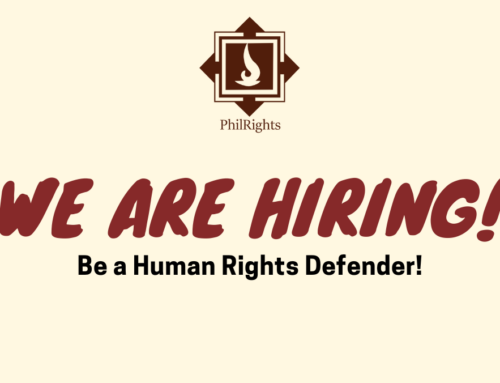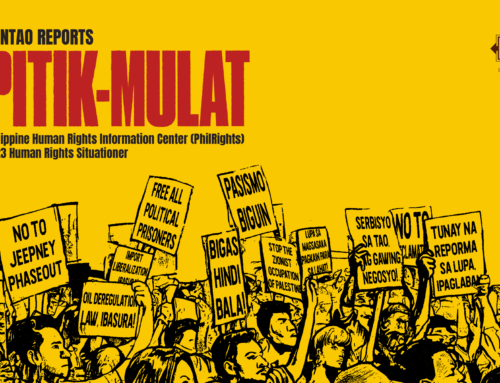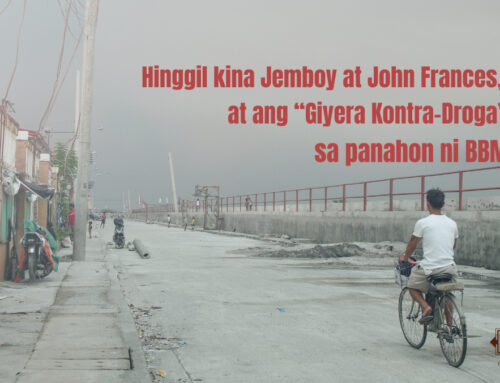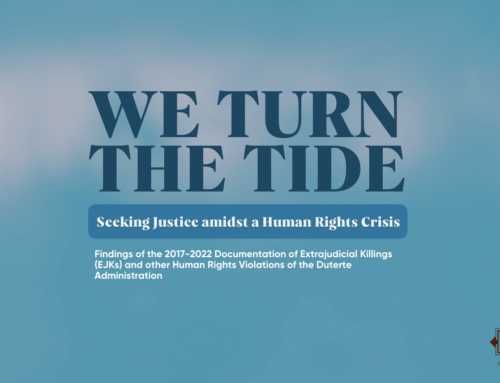Download full report as PDF (11 MB)
by the Philippine Human Rights Information center
Monitoring and Documentation
President Rodrigo Duterte’s so-called war on drugs is and always has been a war waged against the poor. Since 2016, thousands of alleged extrajudicial killings (EJKs) and other gross violations of human rights committed against the poor have been reported in the media and documented by human rights organizations, including the Philippine Human Rights Information Center. The COVID-19 pandemic did not dampen the bloody campaign, with a flood of reports from human rights defenders and peoples’ organizations highlighting the continuing violence in impoverished communities.
For this reason and for the fact that the Duterte administration has made brazen attempts to fend off accountability and transparency in the conduct of its centerpiece campaign on illegal drugs, the cause of justice and human rights has taken on even more urgency. This report, a product of four years of in-depth monitoring and documentation, aims to contribute to the vital task of identifying and documenting cases of violations, so that they are not erased from public memory, and so that evidence may be gathered for use in exacting accountability.
Our Methodology
PhilRights’ documentation abides by the principles and investigation guidelines set by The Minnesota Protocol on the Investigation of Potentially Unlawful Deaths (2016). This document, also known as The Minnesota Protocol, was issued by the Office of the United Nations High Commission for Human Rights (OHCHR) to set international legal standards to prevent unlawful deaths and investigate extra-legal, summary, and arbitrary executions.
The Minnesota Protocol clarifies that a “potentially unlawful death” may
(1) have been due to the acts or omission of the State, its organs or agents including law enforcers, paramilitary groups, militias or death squads allegedly “acting under the direction or with the permission or acquiescence of the State,” and “private military or security forces exercising State functions,”
(2) have happened when the victim was in detention by or in custody of the State, its organs or agents, and
(3) have been due to the failure of the State to fulfill its obligation in protecting life. Under international law, a “potentially unlawful death” is the product of an arbitrary, summary, or extra-legal execution or an alleged extrajudicial killing. In the event that the victim survived the incident, the violation is referred to as “frustrated or attempted extrajudicial killing.”
PhilRights works with community partners in Manila, Caloocan, Malabon, Navotas, Valenzuela, and Quezon City, and the provinces of Bulacan and Rizal for the referral of cases that occurred from July 2016 until the present, for the monitoring of human rights situation in the communities, and for the provision of assistance to victims and their families. The information obtained from the interviews with victims, families, and witnesses are checked against media reports, police records, death certificates, and other sources of information.








